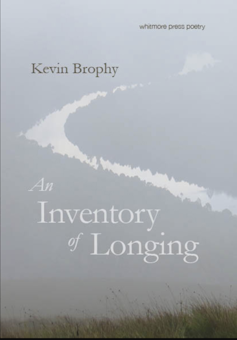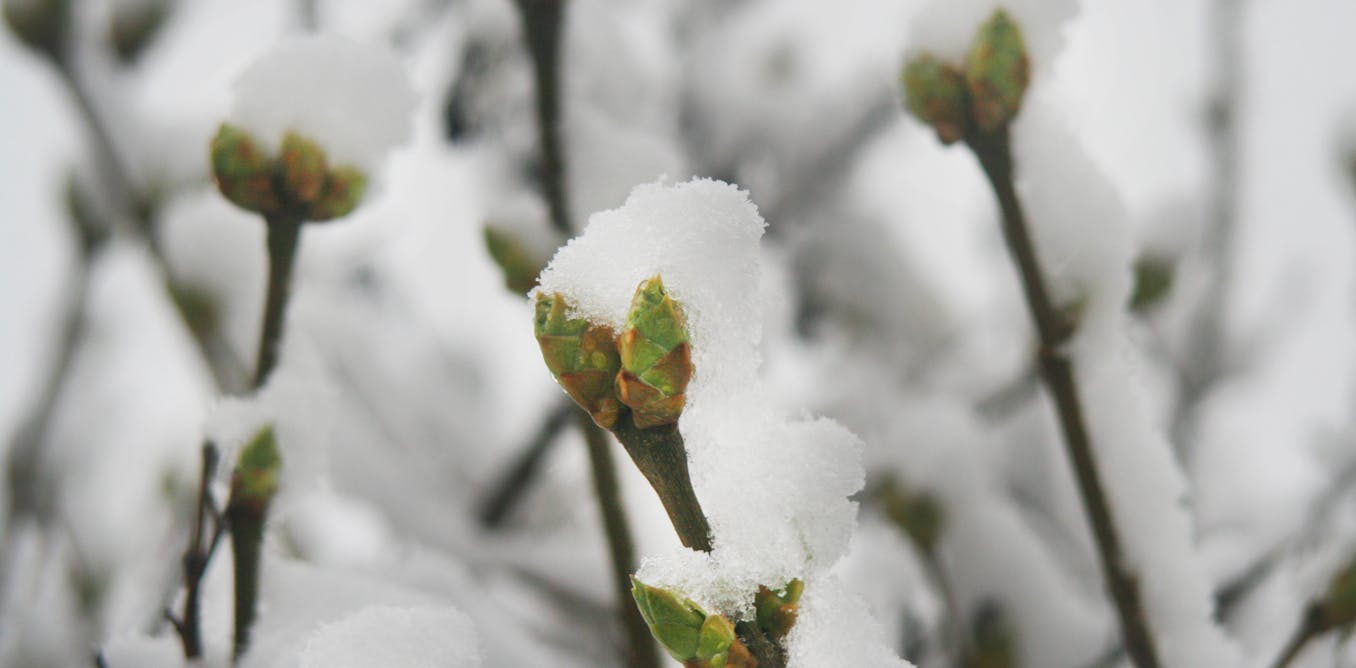Kevin Brophy’s new collection of poems, An Inventory of Longing, is a beautiful publication from Victoria’s Whitmore Press. Brophy is a Melbourne-based author with a significant career as a poet, fiction writer, essayist, editor, and academic.
Brophy was, with poet Myron Lysenko, one of the founding editors of the journal Going Down Swinging and since that time he has been keenly involved in teaching and publishing.
In 2021, he was awarded an Order of Australia (AM) for his services to creative writing and education.
Review: An Inventory of Longing – Kevin Brophy (Whitmore Press)
An Inventory of Longing is divided into four parts. I will focus this review on parts one and four, to which I returned most often, for their myriad connections as much as for the quality of the individual poems.
Part one recalls Hope Mirrlees’ modernist poem, Paris: A Poem (1919), from which it also takes its epigraph:
I wade knee-deep in dreams…
Workmen in pale blue:
Barrows of vegetables:
Busy dogs:
They come and go.
Brophy has long had an interest in dreams, their interpretations and the creative uses to which they might be put (see for example his scholarly work, Creativity: Psychoanalysis, Surrealism, and Creative Writing). We might wonder what he made of this, also from Mirrlees’ Paris:
…behind the ramparts of the Louvre
Freud has dredged the river and, grinning horribly,
waves his garbage in a glare of electricity.
The epigraph is also apposite because in 2019-20, Brophy was the recipient of a six-month writing residency in Paris, hosted by the Cité Internationale des Arts. Part one of the collection records – re-imagines? re-invents? re-interprets? – episodes from his time in the city.
He references famous Parisian landmarks, such as Le Chat Noir and Shakespeare and Company. The poems, then, emerge from various encounters, in particular, between poetry and place and poems previously written in and from, of and about, those places. Brophy’s Paris is in conversation with Mirrlees’ Paris, with numerous other poems, art works, ideas and dreams, but also very much with Paris.
From About Happiness, the book’s first poem:
The river turns its glint green belly to the day
between thin trees bristling at
construction cranes festooned in safety flags.
Police cars on our path fret in blue and red.Further up near the oily mouth of a dark canal
where drifts congeal
a man shows us plastic sheets he sleeps beneath,
and on his phone videos of Sufis – skirts out, hats on,
arms flung like galaxies – and he says he needn’t
think, write or even pray because
a famous prophet took up words and made them
spin and blaze and sing in tender
songs that beggars swear can cure hunger.
The beggars, it would seem, are quite deluded: surely no one believes that “tender/songs … can cure hunger”, which, perhaps, is to say that poems can make a material improvement to the lot of the poor. Later in the poem, when the speaker and his companion have moved on, the speaker reflects on the encounter:
Every day I watch my Sufi dance it makes me happy,
but not for long, not for long enough,
the man had said, snapping shut his phone
as if it might explode.
Trickle-down economics has not worked for this man, and we might wonder about simplistic notions of trickle-down art, or art with an activist bent. To whom are such works addressed? How to account for their efficacy? And yet “every day”, the homeless man watches and “it makes [him] happy / but not for long, not for long enough.”
It can never be long enough because it cannot cure his hunger, his homelessness and yet nevertheless it seems essential, somehow sheltering. This madding, maddening bind, in which some are privileged or otherwise fortunate and many are not – a fact recognised and elsewhere explicitly addressed by the poet, for instance in Dawn song – is the collection’s main subject.
Perhaps for the man – and for the poet? – art is something of an opiate, but one that momentarily displaces rather than dilutes his anger? All of which may seem like drudgery, a dredge, a drag, but Brophy makes of it, to adopt a line from Mirrlees’ Paris, “[h]eavy sweet going.”
Eric Feferberg/AFP via Getty Images
A roiling
An Inventory of Longing is rich with imagery and felt experience, much of which is acutely affecting. The final lines from the title poem might offer a coda: “the world is for sure / worth rolling whole in the mouth.”
There is much to be cycled through, mulled over. From Street, spring:
When a prophet is an ant
its visions of infinity roll the world between its jaws
into sandy pebblesdelivered to a dusty queen below.
The rolling is oftentimes a roiling. Several of the poems in Part Four: From Home are quite heartbreaking. In Unmade Day, for instance, a day might begin
with cycling out from home
where the morning’s first email
was of a too-young poet in another city,
dead, her father wrote, by her own hand.
Such news, devastating to be sure, is taken “out from home” and into the world, for the speaker’s longing, it would seem to me, is to accommodate an unspeakable loss, “whole in the mouth”. “Fists gloved,” the speaker cycles around inner north Melbourne, before,
[s]queezing worn-out breaks down a hillside
then pushing through early mist back up to home
I have one more too-brief song of loss from the dark
O of an open mouth to bring into this unmade day.
The speaker’s wisdom would have been undesired – the price is too great.
The sense we have, to borrow another line from Mirrlees, is that the poet “carries a thousand villages in his heart.”
From a different poem, Notes towards talking about living: “Coming home I have the feeling / that I have gone away.”
And from For Henry:
We arrive flaming into the world, each
breath a gamble with the firestorm within us,
every minute burnt against a winter always coming.

Whitmore Press
Overall – even after all – the collection offers a sense of bristling acceptance, a demand that we see life “whole”. It is hopeful, I think, even in the face of that “winter always coming”.
In this regard, the poet’s observations are exemplary. We notice how, for instance, in Street, spring, the “new nest’s new-hatched heart-fist” contains “something irrepressible” that “buds / towards the future”.
Motifs and themes
I will not give as much attention to parts two and three of the book. However, it is worth noting that the ekphrastic poems in Two: These are not paintings share something of the themes I have been discussing. Of the ten poems in this section, Brophy tells us, seven take their titles from the artworks to which they are responding, all of which might be found online.
From Mother and Infant:
After carving mother and infant from walnut wood
Jacopo discovers in the mother’s gaze a look
he had not intended; he finds in the infant’s
legs a chubby rawness chiselled into them
unwittingly…
The suggestion that the Renaissance artist, Jacopo Della Quercia, finds something in his finished work that has been obtained “unwittingly” speaks to Brophy’s interest in the unconscious and to questions of art, the creative process and representation.
Yes, the sculptor sought to represent the Virgin Mary and the Infant Jesus, but in this seeking – in this process of bringing into being – the artwork eclipses the artist’s intentions. A few lines later: “all new-made, / their gaze tips wildly towards the future / despite their sculptor’s failure to believe / in them”.
In Three: Nine days with Rose, Brophy is perhaps at his most playful, but no less philosophical. It concerns a period looking after a house in a country town and being in close quarters with Rose, a cat who “half-belonged to the owners of the house, and half-belonged to a world difficult to imagine.”
The poet observes the cat and observes the cat observing him in return. Some level of mutual understanding emerges, but one which recognises rather than resolves their various bouts and degrees of fascination and indifference. When Rose goes missing for several days:
In silence I talk with you
asking what might be on your mind,what plans might be sifting through you,
and where the shade might be where your days go by.
The poems in An Inventory of Longing frequently speak back and forwards to each other: “heart-fist” in Street, spring; “[f]ists gloved” in Unmade Day; the book’s first blackbird, which was figured as a “fist-sized revelation” in About Happiness. The motifs and the themes and their conversation recur throughout. In the final poem, Blackbird, the eponymous bird “comes in the morning / then again at noon.”
When friends tell me
there could be
several random blackbirds
I accept
what they say.But I believe this one
comes back.
It comes back, and it keeps coming back, though perhaps ultimately “not for long, not for long enough”.
